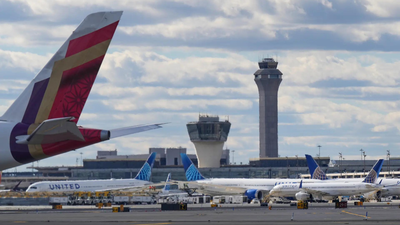Airlines in the United States cancelled nearly 1,200 flights on Tuesday (local time), showing signs of recovery as air traffic control staffing improved markedly ahead of an anticipated resolution to the record 42-day government shutdown expected as soon as Wednesday.According to Reuters, the cancellations followed a chaotic Monday when 2,400 flights were cancelled and 9,600 delayed nationwide. By Tuesday, delays had dropped to 1,700 — the best operational performance the industry has recorded in recent days.
Last week, the Federal Aviation Administration (FAA) had instructed airlines to reduce their daily flight schedules by 4% at 40 major airports starting November 7 due to staffing shortages among air traffic controllers. The reductions climbed to 6% on Tuesday and were projected to reach 8% on Thursday and 10% on Friday, November 14. Discussions between airlines and the FAA are underway on how and when these cuts can be reduced or lifted as the shutdown edges toward conclusion.President Donald Trump on Monday warned that air traffic controllers who refused to return to work could face pay cuts, adding that he would welcome resignations from those not fulfilling their duties. Some carriers have begun holding off on deeper reductions. United Airlines said on Tuesday that it has cut about 5% of its scheduled flights for Thursday, short of the planned 8%.Sources told Reuters that several options are being explored by the FAA to phase out the reductions. Air traffic staffing levels improved sharply on Tuesday, with only four issues reported compared to 81 on Saturday, Transportation Secretary Sean Duffy said.At a press briefing at Chicago O’Hare International Airport, Duffy stated that adjustments would be made gradually as safety allows. “When that data changes, we’re going to start taking that down from 6%, maybe we’ll go to four, two, and get back to normal air travel,” Duffy said. “It depends on controllers coming back to work.”Meanwhile, the Senate voted late Monday to pass legislation funding the government through January 30. The House is expected to consider the bill on Wednesday. Duffy warned that if the House fails to pass the measure, flight disruptions could worsen this weekend. “That’s how serious this is,” he said, noting that some major airlines might be forced to halt operations.Since the shutdown began on October 1, air traffic absences have led to tens of thousands of cancellations and delays, affecting an estimated 1.2 million passengers over the weekend alone. The ongoing shutdown — the longest in US history — has required 13,000 air traffic controllers and 50,000 Transportation Security Administration (TSA) agents to work without pay.The FAA currently faces a shortfall of about 3,500 air traffic controllers, many of whom were already working six-day weeks and mandatory overtime even before the shutdown began.


